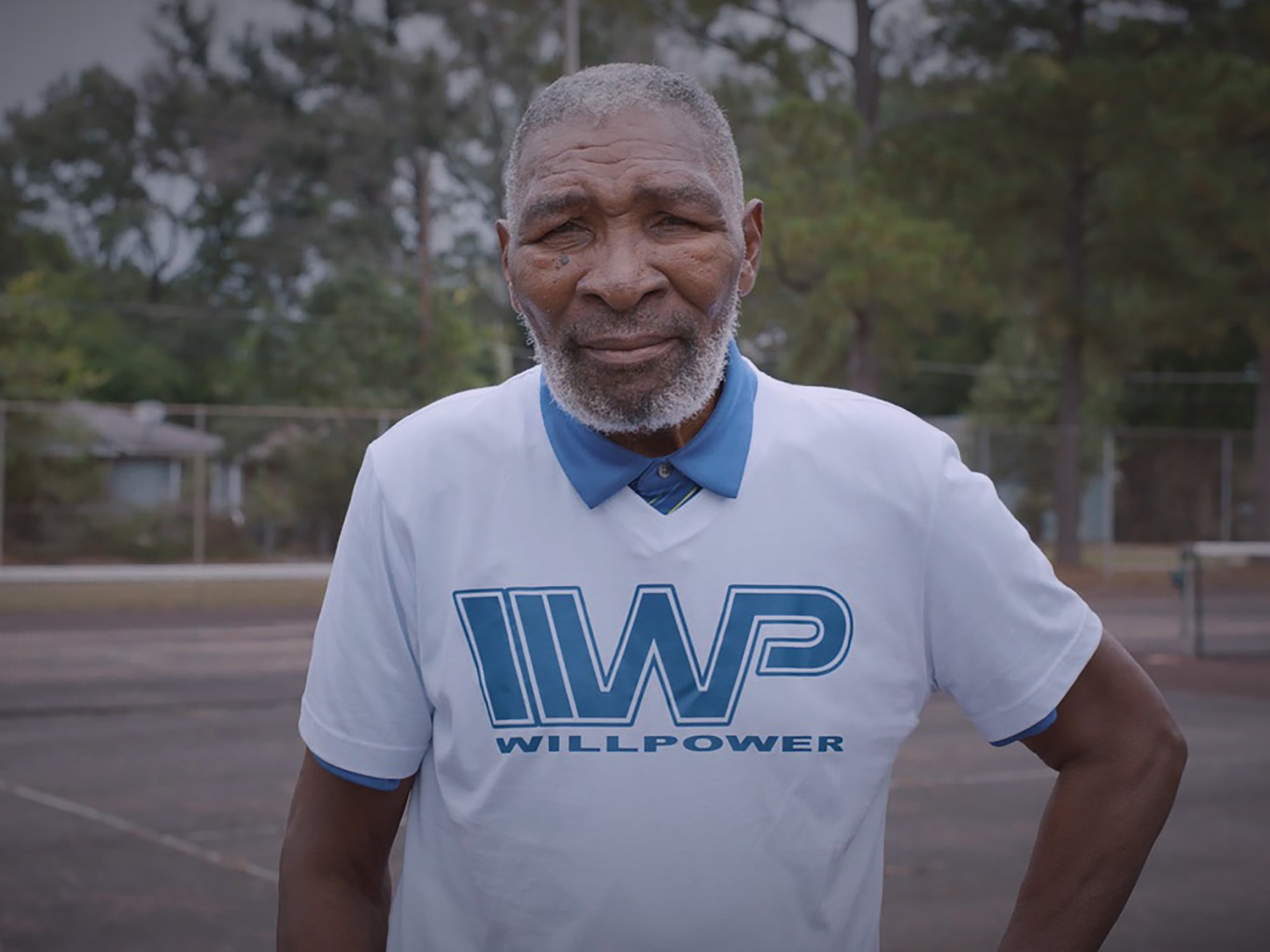
- Industry
Docs: “On the Line: The Richard Williams Story” Examines Famous Tennis Patriarch, Unconscious Bias
Will Smith’s shocking assault of Chris Rock at the Academy Awards not only embarrassed himself, but robbed too his King Richard collaborators of their chance at a special evening, and a lifetime’s worth of associated good memories. It would be a compounded shame if, further down the line, that single act also overshadowed the full and true story of the very complex character Smith portrayed in the film, the father of tennis legends Venus and Serena Williams.
Several former pariahs or figures of public ridicule and pile-driving have in recent years enjoyed critical reappraisals which framed them, and their actions, in a much more sympathetic light. Britney Spears is perhaps the most high-profile example, but Tammy Faye Baker, who Jessica Chastain just won an Academy Award for portraying, also notably comes to mind.
It’s worth noting, though, that precious few of these sweeping cultural reassessments have been of African American figures. The illuminating new documentary On the Line: The Richard Williams Story, which just enjoyed its world premiere at the Tribeca Film Festival, is a notable exception to the largely limited scope of this trend, bringing a fresh perspective and breathing life into its subject in a way that not even King Richard was able to accomplish.
A figure of no small amount of controversy during both the adolescence and nascent stardom of Venus and Serena, On the Line’s title character was frequently pilloried by establishment media during the make-good ascent of his daughters. These denigrations ranged from comparatively benign characterizations of being a clown and self-promoting hype-man to more charged accusations of being a gravy-training race hustler.
Director Stuart McClave’s movie opens with family home video footage in which Richard asks his young daughters, years before the supernova of their fame if they feel part of the ghetto, and what they like about it. This is an interesting leaping-off point and announces On the Line as firmly invested in exploring not merely athletic accomplishment, but chiefly the contours of the modern African American experience — both from the inside-out, as well as outside-in. In doing so, the film shows a lot of preconceptions at the time about its subject to be the result of unconscious bias, shaped by the narrative of contrast between his behavior and what air-quote normal parents (read: overwhelmingly Caucasian American, and disproportionately wealthy) did in various situations.
Abetting this astute sociological unpacking are a well-selected roster of interview subjects, including former players and broadcasters like Katrina Adams, Pam Shriver, and Billie Jean King, plus historian Dr. Dale Caldwell, and Compton City Councilwoman Patricia Moore, among others. In a pair of montage sequences, meanwhile, McClave makes particularly effective use of a pair of songs from singer-songwriter, Michael Kiwanuka, “Cold Little Heart” and “Black Man in a White World,” further underscoring racial hurdles the Williams family faced as they gate-crashed a very ethnically homogenous sport, especially in the United States.
While interweaving some of Richard’s personal history growing up in highly segregated Shreveport, Louisiana, On the Line spends the first 20 to 25 minutes of its 91-minute running time mostly telling a very familiar story, of Venus and Serena being raised in Compton, California, under their father’s watchful yet demanding gaze, and unorthodox instruction. From there, the movie pivots, and mostly focuses on a 10-year period spanning just beyond the end of the 1990s, as the girls’ tremendous on-court success was accompanied by talk (when they were young) about the beads in their hair and, later, whispered allegations of match-fixing whenever the pair met one another on the court.
Among several tennis events serving as narrative pillars, the two biggest are arguably the 1994 Bank of the West Classic, which represented Venus’s professional tour debut, and the 2001 Indian Wells tournament, which in the wake of Venus’s semifinal withdrawal with right knee tendinitis saw Richard being subjected to racist invective and Serena being booed in her native country (and indeed not far from her Southern California home) against Belgian Kim Clijsters.
The film’s title indicates its clear and intended focus, but one can’t help but be a little thrown by the fairly casual diminishment, if not outright dismissal, of Venus and Serena’s mother, Oracene Price. (She and Richard divorced in 2002.) Oracene appears occasionally in archival interview footage, but not enough to give viewers a true sense of her personality or input. It’s a framing which feels a bit reductive, especially given the movie’s otherwise rightful celebration of the Williams sisters as pioneering figures for women’s sports — beginning with Venus signing a record-setting, five-year, $40 million sponsorship deal with Reebok, and affirmed through the sisters’ combined 150 titles, 30 Grand Slam singles championships, and five Olympic gold medals.
It’s also slightly odd that On the Line gives short shrift to a reunion between Richard and famed tennis coach Rick Macci, apportioning it less than two minutes in the film’s concluding push. Macci (portrayed in King Richard by Jon Bernthal) talks about preparing but never filing a $15 million lawsuit in the wake of his firing because he wanted to be remembered as the man who coached Venus and Serena, and not the man who sued their father. The reconciliation between these two seems to offer an important lesson, but the film curiously leans away from it.
Still, On the Line is an engaging work. There are, undoubtedly, elements of its subject that the film presents in sanded-down fashion. But McClave’s documentary avoids hagiography and in fact, achieves something important and quite special by showing how Richard Williams’s perceived unreasonableness or high degrees of reactivity were by design, a shield for his daughters, as well as also rooted in lived experience — an experience which many at the time chose not to try to understand.

